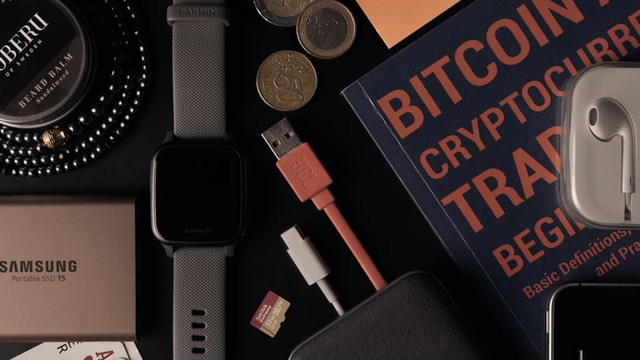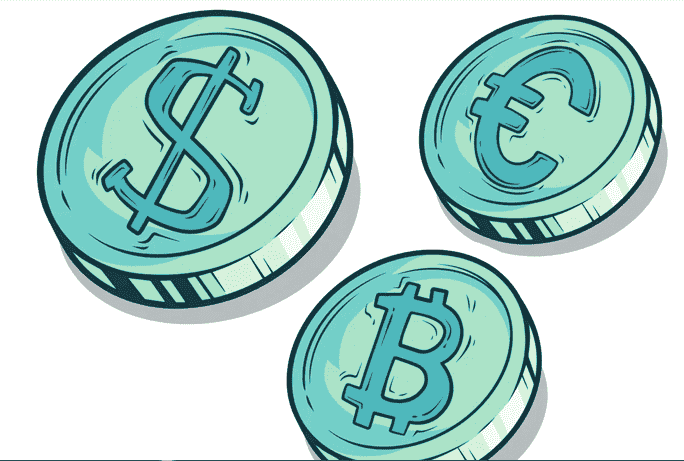Crypto can be a confusing and exciting world to play around in. This article will cover many of the shorthand phrases and expressions it makes use of.
25 Slang Crypto Terms
1. Airdrop
This is one approach to distributing crypto that allows a lot of people to receive it in one go. A lot of new crypto ventures will perform an airdrop and give out tokens in order to elevate awareness and interest with that particular currency. Some airdrops may also come with stipulations, like promoting the project on one or more forms of social media, before a person can receive the token into their wallet.
2. Altcoin
This is a shorthand term for an “alternative coin,” any sort of crypto coin or token that is an alternative to Bitcoin. While some altcoins are quite prominent, like Ethereum and Tether, Bitcoin remains the king of the crypt market thanks to its cap-the total value of the currency within the circulated supply.
3. ATH
This is an acronym for “all-time high.” ATH is one of the main things investors in crypto are concerned with, though the term has uses outside of the world of cryptocurrency. Put bluntly, this is a numeric measurement for a new record high value for a cryptocurrency.
4. ATL
While some Americans may recognize this abbreviation as shorthand for the capital city of Georgia, it has a very different meaning when it comes to crypto. While ATH refers to an all-time high, ATL would be the “all-time low” for a currency.
5. Bag
The “bag” is a situation where someone is in possession of a large amount of one or more cryptocurrencies.
6. Bag Holder
A bag holder is someone left holding the bag at the point when their crypto starts precipitously plunging in market value.
7. BTD
BTD is a shorthand abbreviation for “buy the dip.” Invested parties will encourage a sort of all-or-nothing mentality to the world of cryptocurrency by urging interested crypto buyers to invest during a period where the coin has depreciated in value with the knowledge that any decline in value is just a hiccup toward appreciation.
8. Cryptojacking
This is a strain of malware that hijacks the processes of a computer in order to turn it into a cryptominer. Unscrupulous sorts with an interest in cryptocurrency may decide that the equipment necessary to mine crypto is too expensive and will instead force other people to do the mining for them. Not only can the damage be done before you become aware of it, but this also frees the thief from having to pay for the high electricity bills that cryptomining can entail.
9. DeFi
This is shorthand for “decentralized finance” and is an umbrella term for any sort of financial product or service that is manfucatured within the world of crypto, such as landing platforms and crypto savings accounts.
10. Dust
This expression is used to describe cryptocurrency amounts that are “stuck” in a wallet, often because there is too little of it to trade in through an exchange. Alternately, a person’s dust might have less value than the fees incurred to transfer or make use of it.
11. DYOR
An acronym that stands for “do your own research.” One of the most prevailing pieces of information circulating the decentralized and poorly regulated world of cryptocurrency is that every potential investor should seriously look into all of the details before putting any money into crypto. Even if someone comes to a person and raves about a particular altcoin, that person should still look into things before simply taking that raver’s remarks as gospel.
12. Flip
Cryptocurrencies are often on a leaderboard that assesses their overall market cap. When one crypto’s market cap pushes it up in the ranks, it “flips” the next coin. See also “flippening,” the hypothetical moment when Ethereum will overtake Bitcoin as the leading cryptocurrency.
13. FUD
This is an acronym for the “fear, uncertainty (and) doubt” that newcomers have to crypto, be it a specific currency or the entire concept. FUD occurs in may ways, be it a negative launch for a coin or refusing to invest in crypto. FUDsters are people who spread FUD.
14. HODL
Yet another acronym within this world is “hold on (for) dear life” and this credo posits that fluctuations in value are no time to cash out. HODLers are people who remain a passive level of investment in crypto, choosing to simply buy an amount and keep at that level.
15. Lambo
This is a nickname for a Lamborghini and, in crypto terms, is used to denote the point that such a high-end vehicle is purchasable because a cryptocurrency elevated in value. Someone who asks “When lambo?” is inquiring on when the price might go up on a given currency.
16. Moon or Mooning
These two terms allude to a moment where a given cryptocurrency’s value is rapidly spiking. In other words, it is an indicator that the value is figuratively heading up to the moon.
17. Not Your Keys, Not Your Coins (NYKNYC)
This expression is a remark upon the fact that only someone with the relevant private key is able to make use of the cryptocurrency within a digital wallet. Many enthusiasts of crypto tend to create and use their own wallets so that they can better secure their private keys. Contrast this with public exchanges where the third party company holds onto the private key and stores your cryptocurrencies.
18. REKT
This expression is derived from a phonetic pronunciation of “wrecked” and is used to describe the moment where a crypto investor loses a lot of money. See also: bag holder.
19. Sats
This is the name for a unit of cryptocurrency, equivalent to 0.00000001th of a Bitcoin. The term comes from Satoshi Nakamoto, the pseudonym for the person or persons responsible for inventing Bitcoin.
20. Scamcoin
This is a form of altcoin that is intentionally engineered to bilk investors out of their money. See also: REKT, rug pull and bag holder.
21. Seed Phrase
This is a means of signifying the private key that connects to a crypto wallet. Anyone seeking to create a crypto wallet is advise to keep their seed phrase extremely secure. Since the private key is what allows a user to interact with a wallet and send out crypto, losing a seed phrase can leave a user without even a single cent of crypto.
22. Shill
Even the world of cryptocurrency has its shills, people who are paid to promote a given cryptocurrency in order to elevate its price, also known as “pumping.” While a crypto shill might be an investor, they might also be someone, such as an influencer or a youtuber who is being paid to talk up a given coin; the latter being a far more negative picture as it can indicate that the crypto shill is knowingly promoting a scamcoin.
23. Rug Pull
This is a crypto operation that begins with scammers engineering a new scamcoin and then talking it up as the new best thing. After the scammers have gained enough money from investors, and before anyone wises up to the con, they “pull the rug” from underneath those people, making off with the investments of people who failed to do their own research. The duped investors of a rug pull are also referred to as “rugged.” See also: REKT and bag holder.
24. Weak Hands
This is a derogatory term for an investor of crypto who sells off their coins after a drop, regardless of how shallow that drop might be; the implication is that the person has a weak grasp on their cryptofinances. Contrast to someone with “strong hands” who holds onto their coins regardless of any rise or fall in their value.
25. Whale
This is a term that was originally coined by the video game industry and has since spread to the world of cryptocurrency. While the video game industry defines a whale as someone with a preponderance of income that they choose to spend on in-game purchases like downloadable content, premium currencies and lootboxes, a crypto whale is someone who has invested a large amount of money into one or more varieties of cryptocurrency.
Because every transaction of cryptocurrency is on public record, it is very easy to discern just how much cryptocurrency resides within a given wallet, regardless of whether or not the curious party happens to own that particular crypto wallet and without ever learning identity of a given whale. Because they have such a large portion of the total number of coins within a given cryptocurrency, a single whale can greatly influence the price of crypto by quickly buying more or selling it off.










